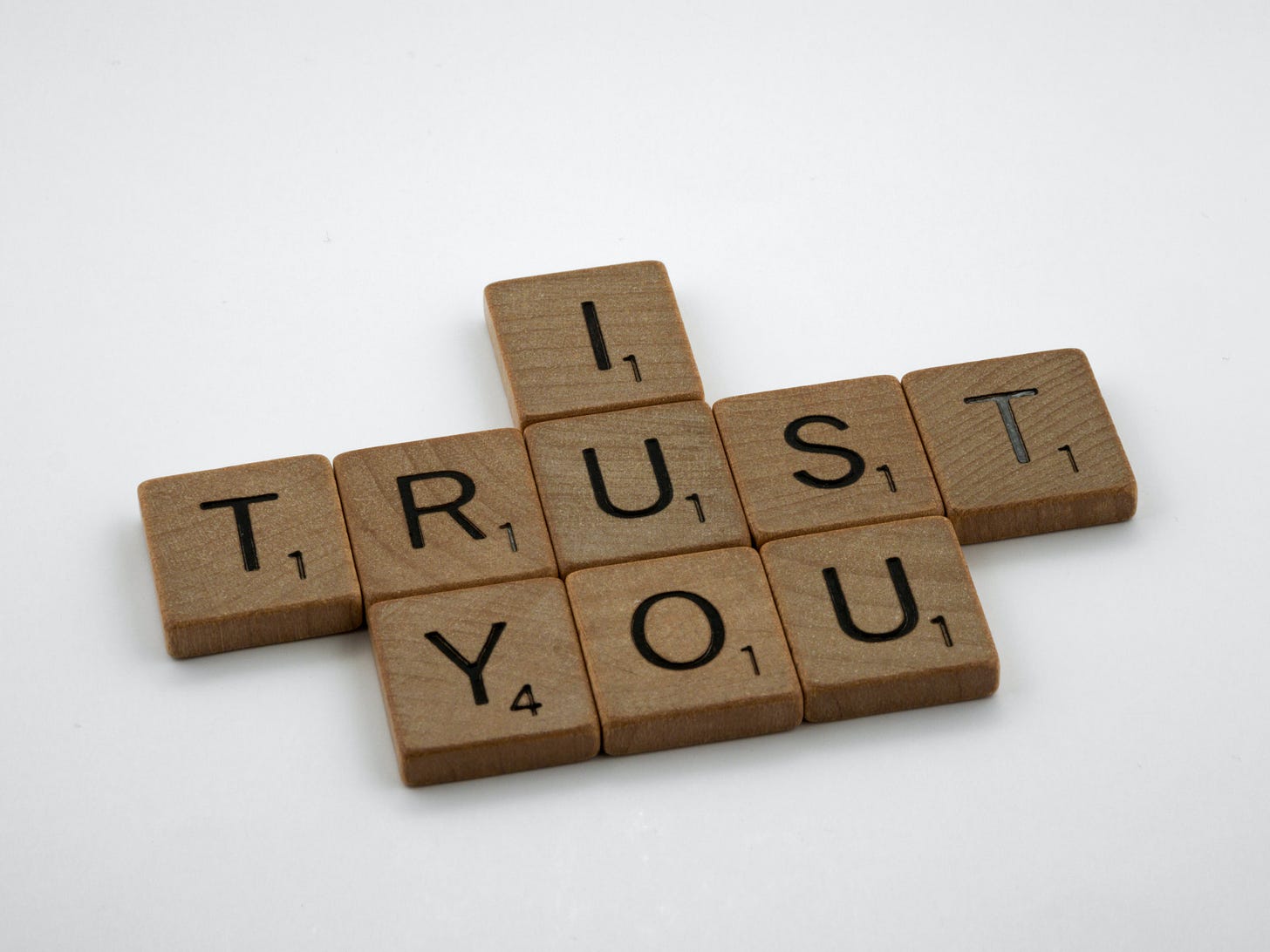When we have a choice, it’s always better to work with trustworthy people. When we trust people, we are trusting two things: that they have the INTENTION and the COMPETENCE to do what they say they are going to do.
To avoid being blindsided, make sure you do not BLINDLY trust either factor.
Ask questions to assess competence, preferably that allow the person’s competence to shine, rather than in an accusing or negative way. Set up verification processes, such as having a second set of eyes on each part of an assignment before it goes to the next step.
Get a feel for the person’s intentions through a conversation, as well. And watch how they deal with other people—if they criticize other people behind their backs, or “throw people under the bus” to deflect blame from themselves, or ask people to lie for them, like “Tell them I’m not here,” or suggest ways your team might “trick” a client into signing off on something we don’t think they’d like, then that person has integrity issues. If they will do that behind someone else’s back, there’s a good chance they’ll do it behind YOUR back. In fact, they might be doing it right now.
If you have to work with someone you don’t trust, make sure you protect yourself, your team, your firm, your client (and your nation, your planet, etc.) by documenting everything. Stick to the facts; put everything in writing, and keep all potentially affected parties in the loop (when possible). Assume that, if the situation gets bad enough, you might be reading this documentation out loud in a courtroom (because it sometimes comes to that), and make sure you have the facts, the law, and the high ground on your side.
But since CYA activities are a huge time-suck, it’s better to minimize your dealing with untrustworthy people as much as possible.
(Photo by Brett Jordan on Unsplash)



